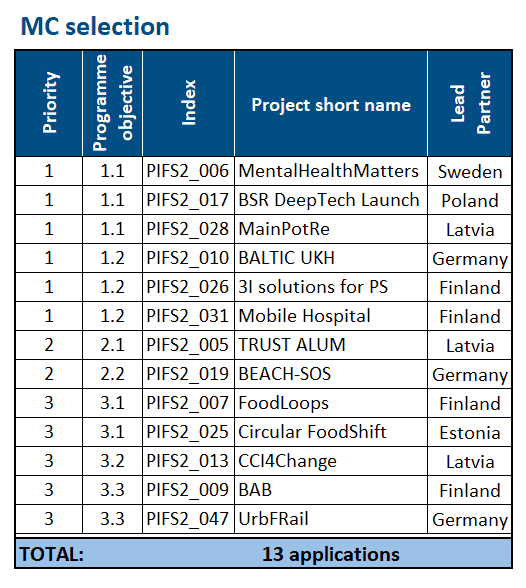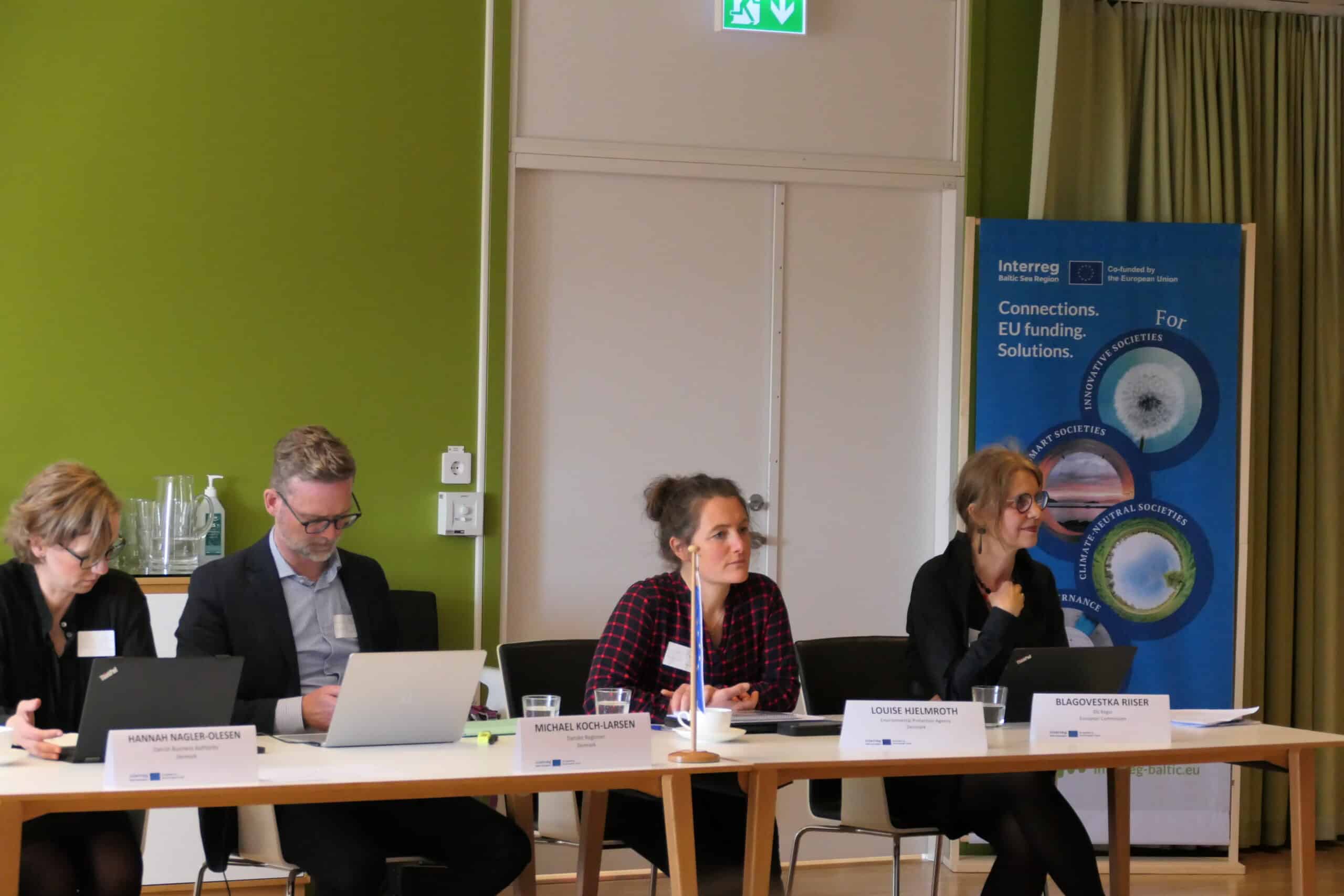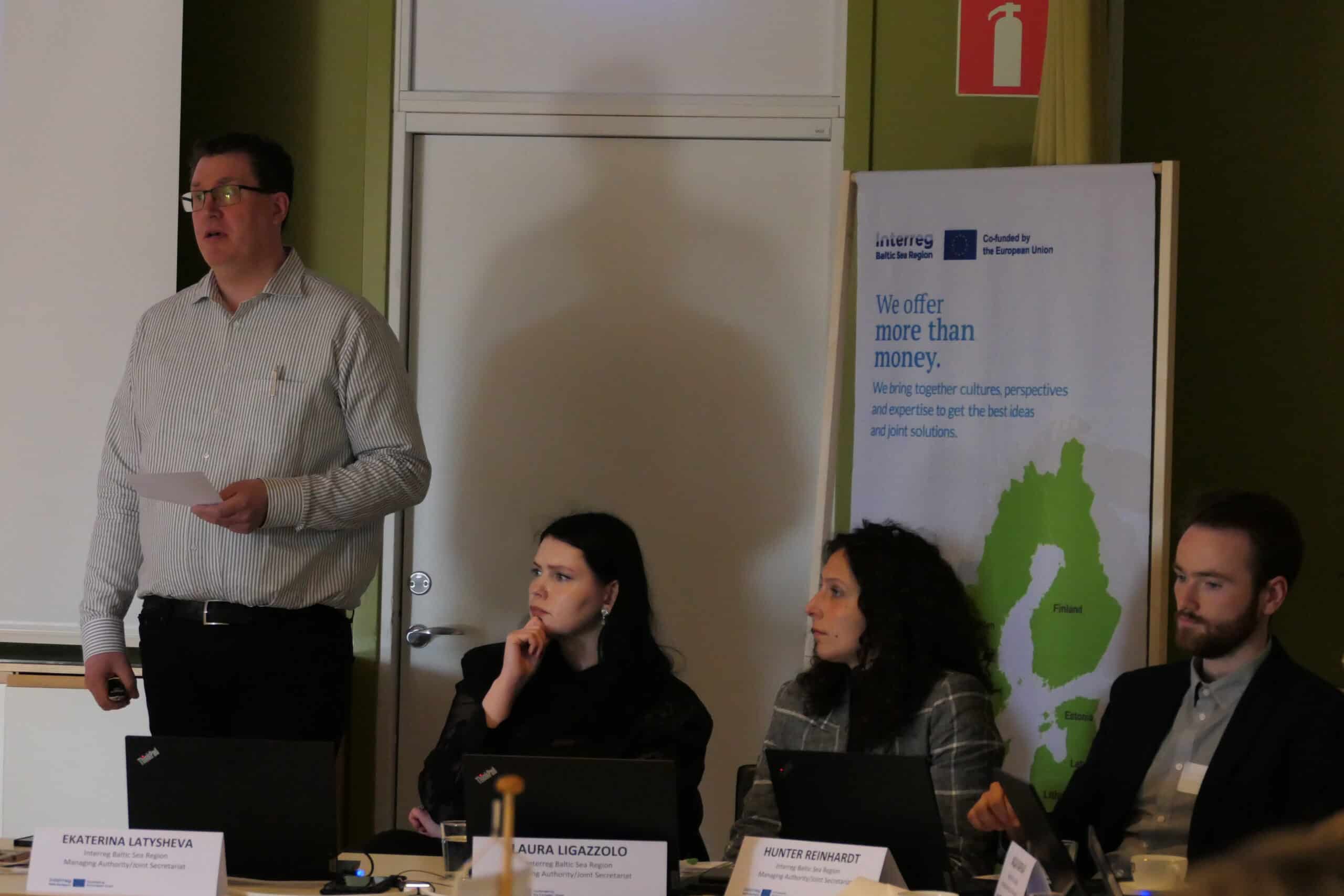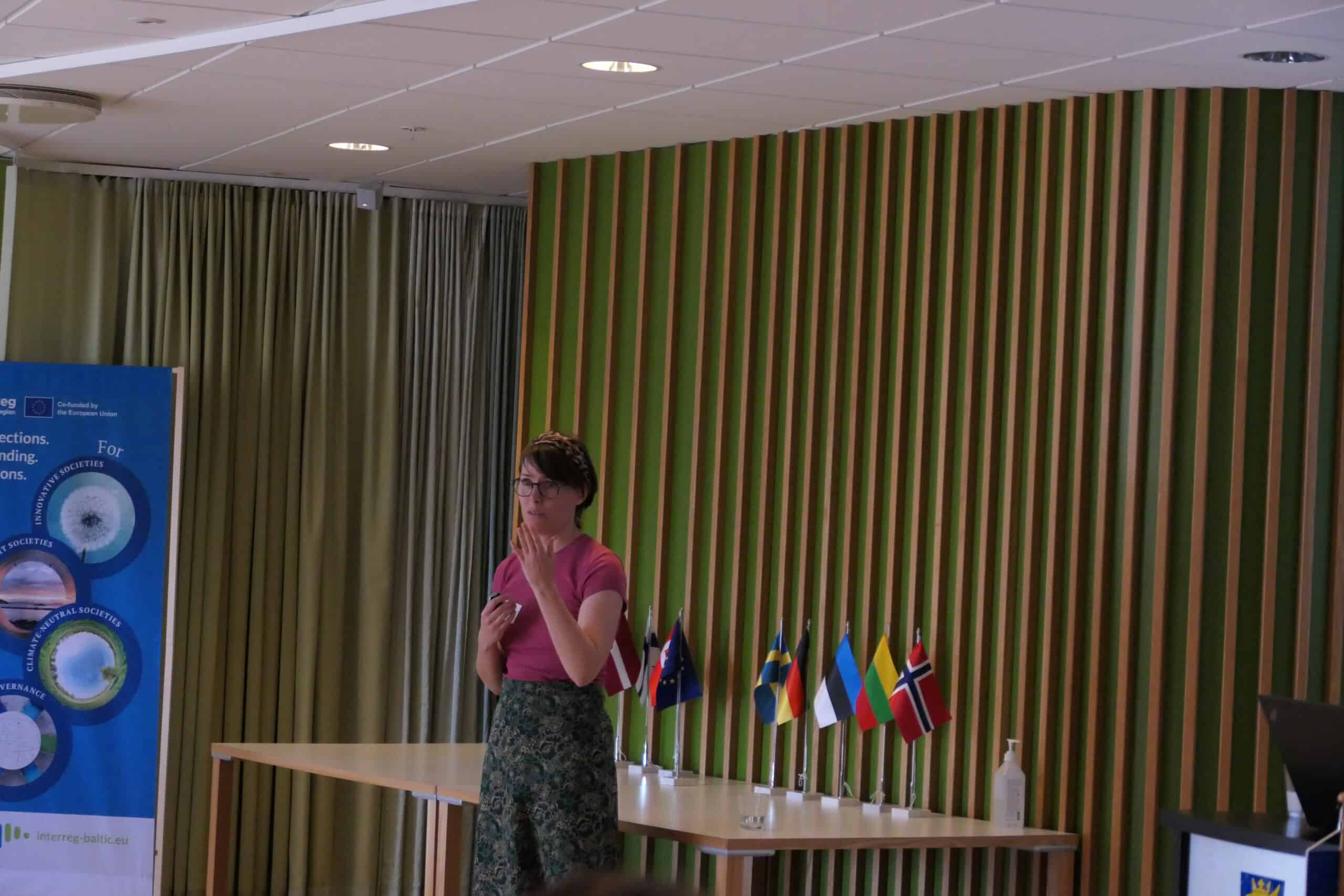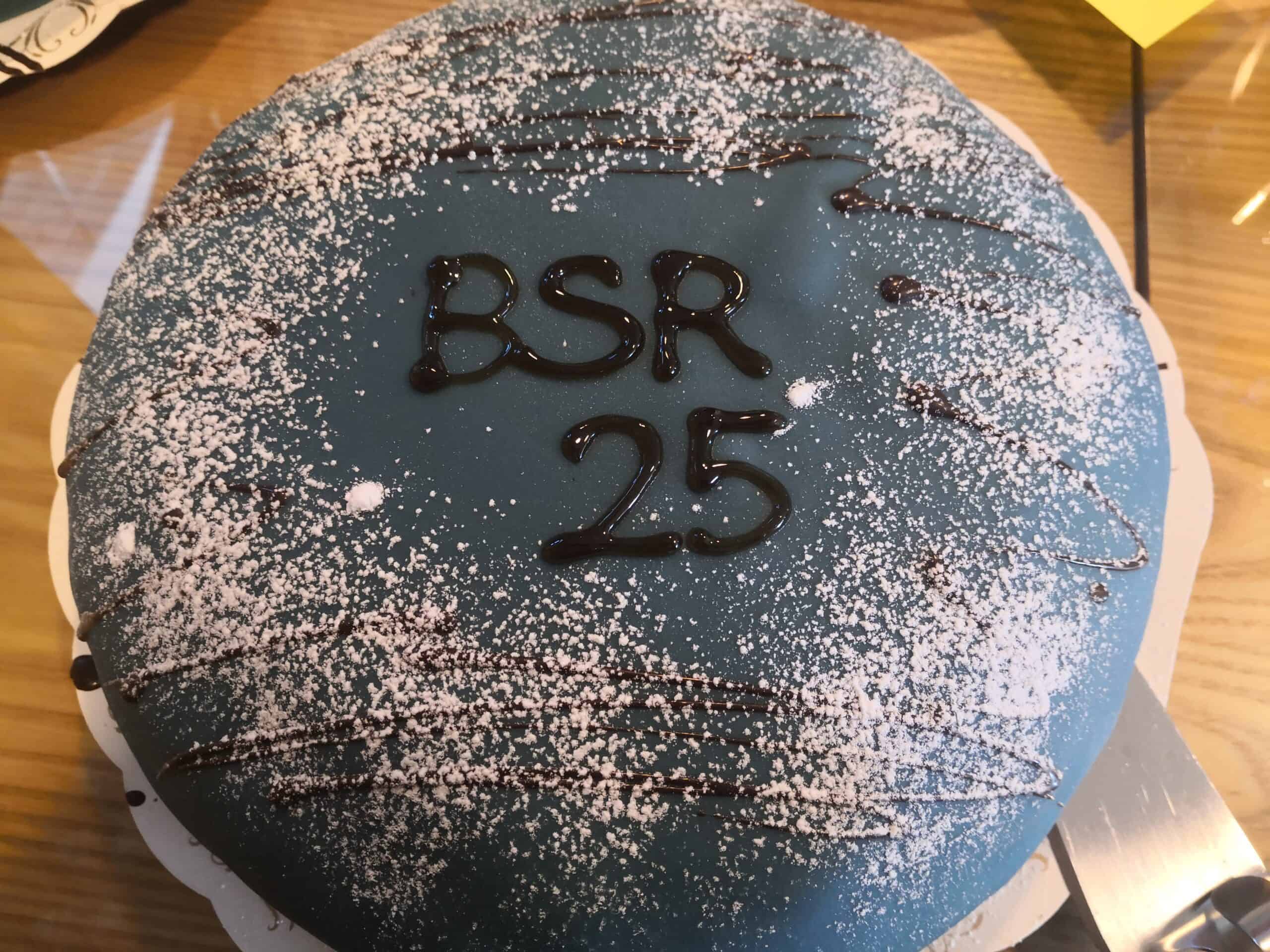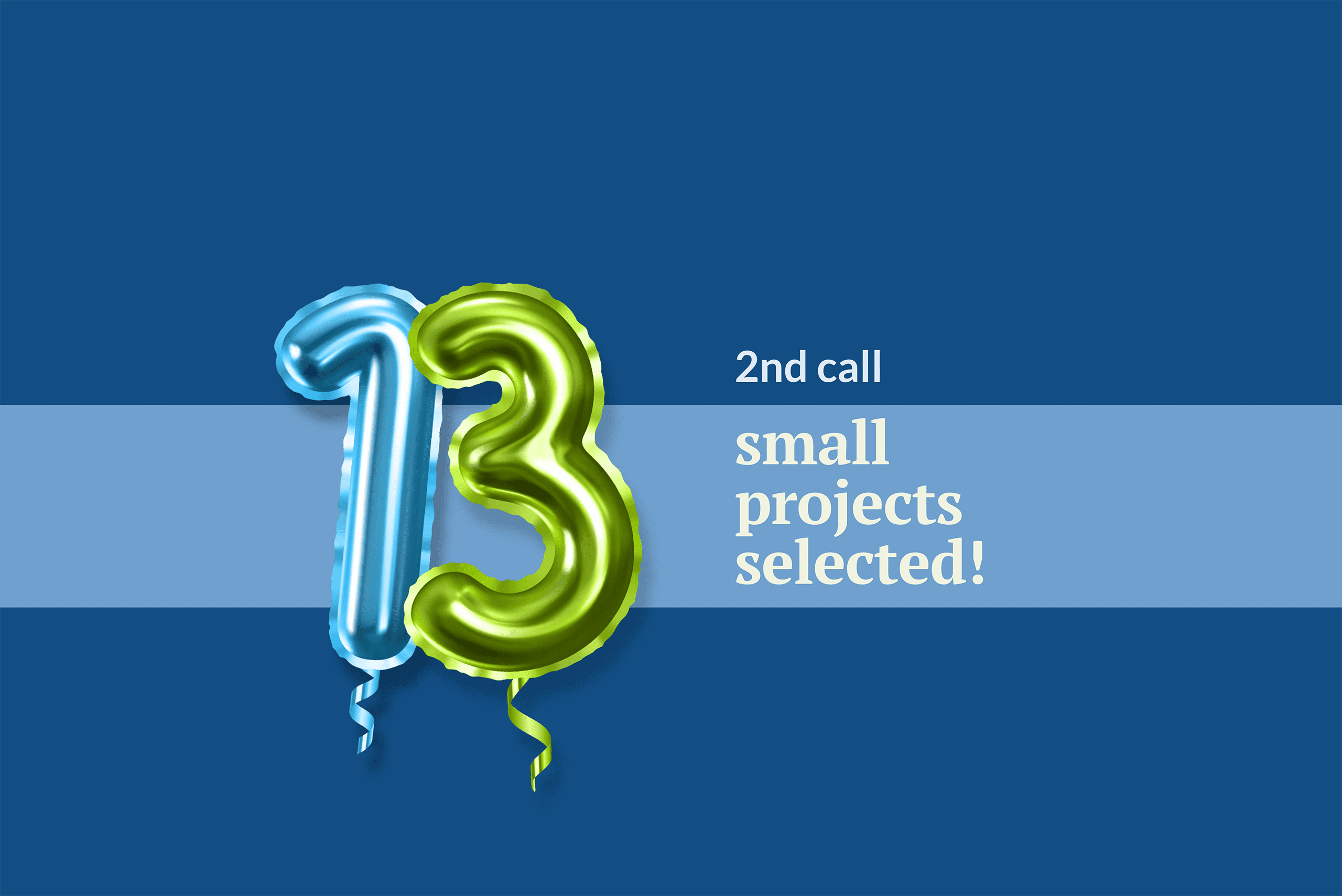
20 April 2023
The best ideas selected!
Written by Viktoria Nilsson
3rd Monitoring Committee meeting
On 19-20 April in Malmö, the Monitoring Committee met for the third time in the new Programme. The host of the meeting Annika Annerby Jansson, President of the Regional Council of Region Skåne welcomed the participants. Carl-Johan Klint from the Ministry of Rural Affairs and Infrastructure chaired the meeting in light of the ongoing Swedish chairmanship.
Selection of small projects
The main highlight of the meeting was the selection of small projects in the second call. Out of 41 applications, the Monitoring Committee selected 13 small projects for funding. With the funding of almost 5 mln EUR from the European Regional Development Fund and 0.07 mln EUR from Norwegian funds, the small projects will drive transition to a green and resilient region. The selected projects target the three thematic priorities of the Programme and will trigger cooperation in a variety of topics.
In Priority 1, Innovative societies, six projects were selected for funding: three in objective 1.1. Resilient economies and communities and three in objective 1.2 Responsive public services. The projects will help minimise psychosocial risks in a workplace, accelerate deep tech innovation, and support seed banks. In the area of responsive public services, the projects will promote digital literacy, the benefits of using advanced digital technologies to deliver public services, and digital healthcare counselling for children and families.
In Priority 3, Climate-neutral societies, the Monitoring Committee selected five projects for funding: two projects in objective 3.1 Circular economy, one in objective 3.2 Energy transition, and two projects in 3.3 Smart green mobility. The projects will support circular food systems, provide stronger incentives to reduce energy consumption, advance cycling infrastructure, and revitalise inner-urban freight rail hubs.
Review of the Programme 2014-2020 and future outlook
At the meeting, two projects from the Programme 2014-2020 FanpLESStic-sea and Circular PP shared their experiences and conveyed testimonials. Both projects contributed to gearing up the green transition of our region. The FanpLESStic-sea helped prevent microplastics from entering the Baltic sea, while the Circular PP project provided public authorities with stronger incentives to implement circular procurement.
Among other topics on agenda, the members of the Monitoring Committee reflected on the received applications for core projects, discussed the plans for the third call, financial matters, approved the proposed evaluation plan of the Programme and received updates on communication activities.
Celebrating 25 years
At the meeting, we had the pleasure to continue celebrations of the 25 years´ anniversary of the Programme: nice memories, heartwarming wishes and a celebrative atmosphere. Celebrate with us! Check here what the members of the Monitoring Committee and external stakeholders are sharing on their long-standing cooperation with the Programme, best memories and wishes for the future.
Images from the meeting
More recent news
Grand results of the first round of small projects!
Despite the winter scenery, the results of 17 finalised Interreg Baltic Sea Region projects are in full bloom! And behind them lie two years of intensive work across borders, mutual learning and inspiration, and connections that last.
Climate-neutral future at hand for Baltic Sea region cities
Turning a city into a climate-neutral one requires knowledgeable people, thorough planning and solid financial resources. But how can cities manage this transition smoothly? The Interreg project Climate-4-Case guides cities around the Baltic Sea on how to do that right.
Designing Interreg Baltic Sea Region that belongs to everyone
10 December 2025 Designing Interreg Baltic Sea Region that belongs to everyone Written by Eeva Rantama What if the next Interreg Baltic Sea Region...
Monitoring the Programme’s progress: transnational cooperation in the making
Representatives from nine Programme area countries gathered in Berlin on 19-20 November 2025 to review the progress of the Programme’s implementation and start preparing for the post-2027 period.



